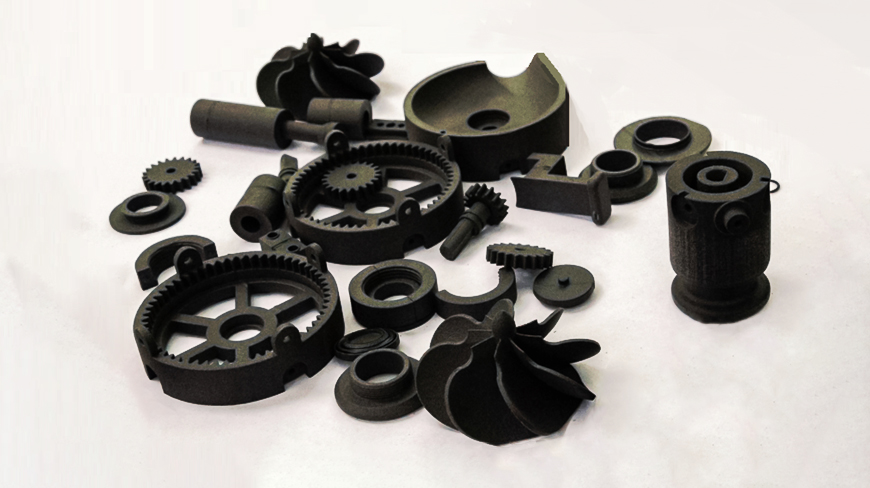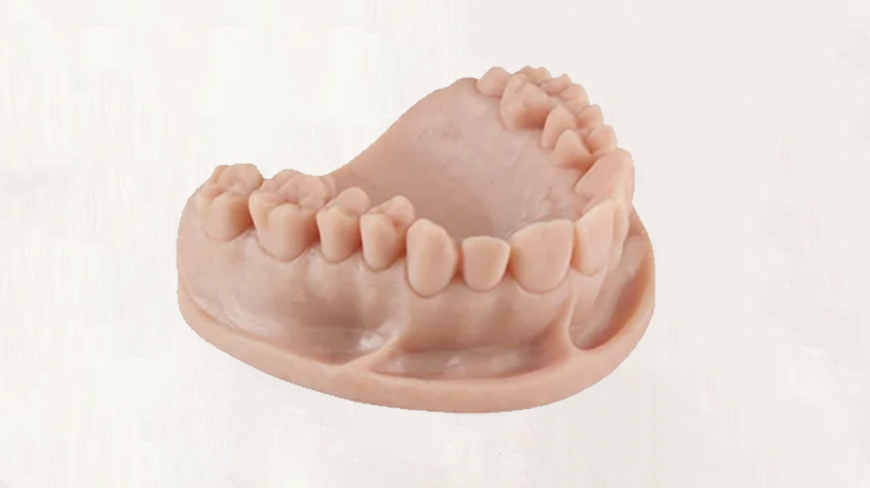Quality service with the strength of a producer.
Our printing service is operated entirely withour line of 3D printers. We produce professional printing technology for the goldsmith, dental and engineering industries. Thanks to this direct integration, we can offer a high standard of quality at the production stage and lower production and printing costs. Your most ambitious projects will be developed by a team of experts trained specifically on our machines.
Let us know your Project
Materials Guide
FDM printing

ABS is a synthetic thermoplastic resin; it is a common thermoplastic polymer used to create lightweight, strong objects such as pipes, musical instruments, automotive body parts and toys. It exhibits good stiffness and toughness at low temperatures down to -40 °C resistance to high temperatures, impacts and nicks. ABS is the ideal Material for industrial FDM printing, by injection, extrusion and thermoforming, it sticks and welds well and can be screwed with self-threading screws.
3D Business ABS ranks high in overall quality, printability, low shrinkage and surface quality. Printing at temperatures between 220°C and 260°C, the heated plate is highly recommended, mandatory for medium to large pieces.
PLA is a rigid material and possesses limited temperature resistance, about 60 degrees. It is a biodegradable material and is water-soluble at temperatures above 70-80°C. It can be extruded quickly and easily due to low shrinkage. It has a relatively high density of about 1.2 g/cm3, as well as being slightly shinier to the eye. PLA is extrudable at lower temperatures than other 3D printer materials, is normally processable from 180 to 210°C, does not emit toxic substances to humans, does not require the heated platen, has a shrinkage index of 2-3% at most, particularly suitable for large-format prints, high-speed prints, and for those new to the industry.
3D Business PLA has high color stability even on different batches; it is an extremely versatile material and can be easily used on virtually any printer on the market. PLA3D Business, unlike many commercially available PLAs, proves to be extremely resistant to impact tests, not demonstrating the typical brittle character of this material.
PLA is a rigid material and possesses limited temperature resistance, about 60 degrees. It is a biodegradable material and is water-soluble at temperatures above 70-80°C. It can be extruded quickly and easily due to low shrinkage. It has a relatively high density of about 1.2 g/cm3, as well as being slightly shinier to the eye. PLA is extrudable at lower temperatures than other 3D printer materials, is normally processable from 180 to 210°C, does not emit toxic substances to humans, does not require the heated platen, has a shrinkage index of 2-3% at most, particularly suitable for large-format prints, high-speed prints, and for those new to the industry.
3D Business PLA has high color stability even on different batches; it is an extremely versatile material and can be easily used on virtually any printer on the market. PLA3D Business, unlike many commercially available PLAs, proves to be extremely resistant to impact tests, not demonstrating the typical brittle character of this material.
PETG, is a polymer derived from polyester and is one of the most widely used thermoplastics in use today. All mineral water bottles are made of PET. In addition, since PET is highly resistant to water and moisture, it is an excellent packaging material for food and especially for beverage bottles. In print it shows itself to be very easy to use, holds its shape well, and can be used to hold food liquids without toxicity problems. Like most PET materials, it offers excellent layer adhesion and thermal stability, and does not produce odors during the printing process; it is also fully recyclable.
3D Business PETG has high mechanical and thermal characteristics, exhibits extremely high surface quality by masking layers very well. Transparent tints have a beautiful sheen, for printing we recommend increasing typical retraction values, enable Z-hop to eliminate stringing. Typical printing temperatures 210°C-230°C, heated platen recommended.
Rubber Details
Carbon Details
DLP printing

Calcinable resin for the goldsmith industry.
Features
Features 2


